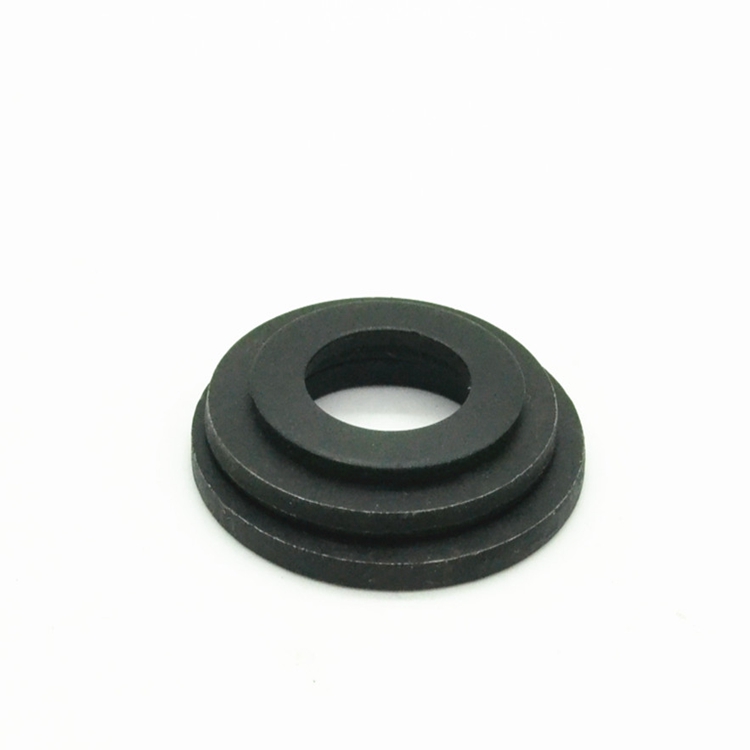washers for carriage bolts exporter
Oct . 04, 2024 06:00 Back to list
washers for carriage bolts exporter
The Role of Washers in Carriage Bolt Applications A Focus on Exporters
Carriage bolts are widely used in various applications, including construction, woodworking, and metalworking, thanks to their unique design and reliability. However, the effectiveness of carriage bolts can significantly depend on the use of proper washers. Washers serve as crucial components in bolted joints, enhancing the performance and longevity of the assembly. In this article, we will explore the role of washers in carriage bolt applications, and the importance of exporters in supplying high-quality washers to meet global demands.
Understanding Carriage Bolts
Carriage bolts are characterized by their smooth, domed heads and square necks, which prevent the bolt from turning once it is installed. This feature makes them ideal for use in situations where a nut cannot be easily accessed, as is often the case in tight spaces. They are commonly used in wood-to-wood or wood-to-metal connections, providing strong, secure anchoring. However, to maximize their holding power and ensure a tight fit, the right washers are essential.
The Importance of Washers
Washers provide several critical functions in conjunction with carriage bolts
1. Load Distribution One of the primary roles of washers is to distribute the load over a larger area. This is crucial when working with softer materials, such as wood, where concentrated pressure from the bolt head can cause splitting or damage. Washers help spread this pressure, minimizing the risk of failure in the structure.
2. Vibration Resistance In applications subject to movement or vibration, washers can help maintain the integrity of the joint. They can prevent the loosening of the bolt over time by providing a more stable contact surface. This is especially important in industries like automotive manufacturing, where vibrations are commonplace.
washers for carriage bolts exporter

3. Protection Against Corrosion Washers can also serve as a barrier between the bolt and the material being fastened, reducing the chance of galvanic corrosion. For exports, stainless steel or coated washers are often preferred, as they offer enhanced resistance to rust and deterioration.
4. Improved Sealing In specific applications, washers can help improve sealing by providing a tighter fit that prevents moisture ingress. This is particularly vital in outdoor or wet environments, where durability is a concern.
The Role of Exporters
With the global demand for carriage bolts and corresponding washers on the rise, exporters play a pivotal role in the supply chain. They ensure that manufacturers and builders have consistent access to high-quality washers that meet strict industry standards. The best exporters source their products from reliable manufacturers that adhere to international specifications, providing buyers with confidence in the materials they use.
Exporters also contribute to market growth by adapting to regional needs and preferences, offering an array of washer types, sizes, and materials. Whether it's flat washers, lock washers, or specialized types, they help facilitate the proper matching of washers to carriage bolts for various applications.
Conclusion
In conclusion, the combination of carriage bolts and washers is fundamental to the integrity of many constructions and assemblies. The role of washers should not be underestimated, as they provide crucial benefits such as load distribution, vibration resistance, corrosion protection, and sealing capabilities. Exporters are essential in ensuring the accessibility of high-quality washers to meet the demands of various industries worldwide. By understanding the importance of these components, manufacturers and builders can enhance the performance and longevity of their projects, driving industry standards higher.
Latest news
-
Reliable Wire Bolts Suppliers | Quality Zinc Plated Fasteners
NewsAug.26,2025
-
Wire Bolts Suppliers: Durable & Reliable Fasteners for Every Project
NewsAug.25,2025
-
Premium Cabinet Bolts Supplier | Wholesale & Custom Solutions
NewsAug.24,2025
-
Reliable Axle Nuts Supplier | Quality & Precision Fasteners
NewsAug.23,2025
-
Durable Bolts for Lawn Mower Handle - Top Supplier & Manufacturer
NewsAug.22,2025
-
High-Quality Bolts for Lawn Mower Handle Supplier & Manufacturer
NewsAug.21,2025
